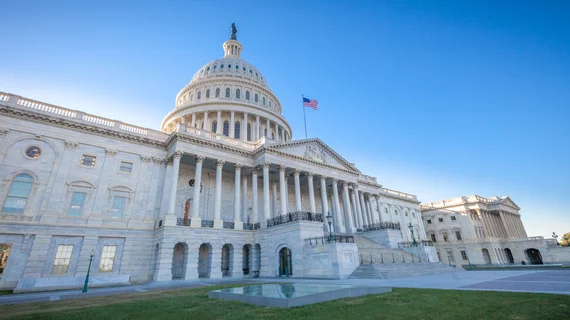Bipartisan group of 50 US senators supports stopping radiologist Medicare pay cuts
A bipartisan group of 50 U.S. senators are voicing their desire to stop Medicare pay cuts for radiologists and other physician specialties set to take effect on Jan. 1.
The coalition of lawmakers shared their concerns in a letter to Senate leaders on Friday in response to the recently released 2021 Physician Fee Schedule. While supporting increased funding for primary care and other office-based visits, the group believes paying for such changes on the backs of specialists will strain the system while jeopardizing patient access.
“Healthcare professionals across the spectrum are reeling from the effects of the COVID-19 emergency as they continue to serve patients during this global pandemic,” senators wrote to leaders Mitch McConnell and Charles Schumer on Dec. 4. “The payment cuts finalized by CMS would pose a threat to providers and their patients under any circumstances, but during a pandemic the impact is even more profound.”
The lawmakers noted that pay increases for evaluation and management services necessitate these cuts to balance the budget. They closed by telling congressional leaders that they “hope to work with you to address this critical issue.”
Senators Debbie Stabenow, D-Mich., Steve Daines, R-Mont., and numerous others did not suggest how they hope to avert these cuts. Physicians lawmakers in the House have suggested granting add-on payments to providers over the next two years to offset the roughly 10% reimbursement decrease, an approach favored by radiology advocacy groups.
Sen. Susan Collins, R-Maine, previously expressed her opposition to these pay cuts back in October. The Surgical Care Coalition—representing 12 professional associations and more than 150,000 physicians—applauded the letter on Monday.
“It is irresponsible to cut healthcare spending in the middle of the pandemic, and these cuts will hurt patients by limiting their access to quality care,” the group said. “We thank the senators for their leadership, and we pledge to work with Congress and all interested parties to work toward finding a solution that will protect patients by stopping these devastating cuts.”

